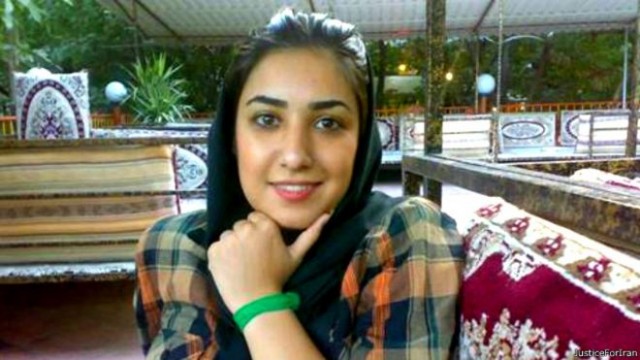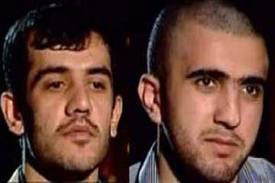
Help share the message of February 11th by adding this solidarity image to your blog, website or social networking profile.
Iranian authorities have committed horrific abuses in the aftermath of the disputed presidential elections last June. Several months later, human rights in Iran remain under attack and the level of repression reaches a breaking point.
Several important events in the Iranian political calendar from the end of January through late March make this threat imminent, most notably the “Victory of the Revolution” day on February 11, 2010, marking the 31st anniversary of the fall of the Iranian monarchy and the return of Ayatollah Khomeini from exile in France in 1979.
Given the importance of February 11th for Iranians, we are calling on our members and the public to unite in the blogosphere to show support and solidarity for those suppressed voices in Iran. During our “Unite for Human Rights in Iran” bloggers day, we are encouraging everyone to publicize the ongoing dire human rights situation in Iran and call for the protection of those arrested or detained from torture or other ill-treatment. Moreover, we urge you to highlight the need to release prisoners of conscience and those convicted after unfair trials.
Opposition leaders are calling for supporters to peacefully demonstrate on February 11th. The Iranian authorities attempt to thwart protests has already led to the expedited executions of Mohammad Reza Ali-Zamani and Arash Rahmanipour, convicted of moharebeh or “enmity against God” and for being members of a banned anti-revolutionary political group last week. It is also expected that nine other protesters sentenced to death for their participation in the post-presidential election protests will be swiftly executed prior to February 11th day in order to further intimidate and silence the opposition.
The executions are clearly a sign of the government’s frustration to end the protests. There are fears that the government might engage in the kind of cleansing that it did between 1980 and 1988, when it executed more than 3,000 political prisoners.
– Hadi Ghaemi, the executive director of the International Campaign for Human Rights in Iran

AI activists protest against the post-election violence in Iran. July 25, 2009 ©Amnesty International
We are calling for strong international condemnation of human rights violations in Iran. As the United Nation’s prepares for its Universal Periodic Review in mid-February, focusing attention on the need for a strong report condemning human rights abuses in Iran by the Human Rights Council is also critical.
Help us raise the voices of those calling for freedom and justice inside Iran. Stand with the people of Iran on February 11th!
Stand with us to ensure that Victory of the Revolution Day signifies an end to these abuses!


 The first charter on human rights was authored by Cyrus the Great over 2500 years ago. As Iranians we are heirs to a proud tradition of human rights and tolerance. Sadly, the Iranian authorities have not lived up to this legacy, as can be seen by the mock trials, false imprisonments, torture, child executions, and lack of equality for women in Iran today.
The first charter on human rights was authored by Cyrus the Great over 2500 years ago. As Iranians we are heirs to a proud tradition of human rights and tolerance. Sadly, the Iranian authorities have not lived up to this legacy, as can be seen by the mock trials, false imprisonments, torture, child executions, and lack of equality for women in Iran today.

 Tens of thousands of Amnesty members took action in response to news of his arrest. And last week, Soltani was released. While we continue to have a number of concerns about human rights in Iran, we have found Soltani’s release, along with
Tens of thousands of Amnesty members took action in response to news of his arrest. And last week, Soltani was released. While we continue to have a number of concerns about human rights in Iran, we have found Soltani’s release, along with